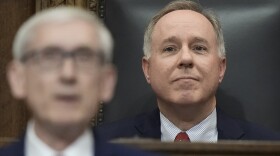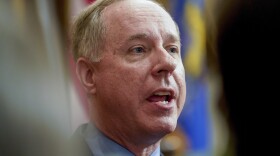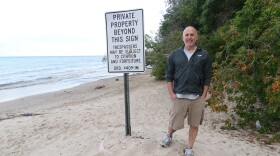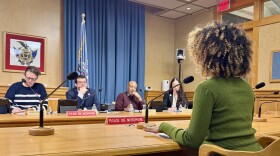NPR stories
WUWM stories
-
Milwaukee officials and community leaders hosted a protest safety event in case of a potential influx of U.S. Immigration and Customs Enforcement agents in the city.
-
The Democratic governor, who is not seeking reelection, focused on school funding, property taxes and the economy.
-
The State Democracy Initiative's Derek Clinger weighs in on President Trump's calls to 'nationalize' voting and legislative efforts to overhaul voting requirements.
-
A Madison-based environmental law firm filed an appeal to Milwaukee Circuit Court on behalf of the Shorewood resident who received a citation for walking the shoreline beyond this public beach.
-
On Feb. 11, several Milwaukee Common Council members announced two new initiatives in case of a potential influx of ICE agents in the city.
-
Milwaukee police have banned the use of facial recognition technology for now, following a heated Fire and Police Commission meeting. A tech policy shares what the public should know.
-
This week's Capitol Notes asks politics whiz JR Ross to lay out what's happening in Congress and how Wisconsin's representatives are approaching it.
-
Over the past few years, Milwaukee police have used facial recognition technology in criminal investigations. But they did so without community input or documented procedures. All of that came to a head in a Fire and Police Commission meeting.
-
What does it mean to be Jewish? A new initiative in Wisconsin schools explores just that.
-
Many Milwaukeeans are wondering what the city’s plans are if Milwaukee gets a large influx of ICE agents. Hundreds of people attended an alderman's town hall to learn more.

















